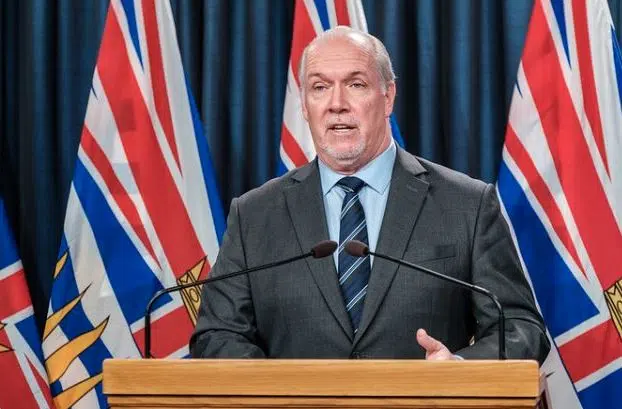
B.C. Premier John Horgan says he supports the move by the Canadian Association of Chiefs of Police who are calling for the decriminalization of simple possession of illicit drugs for personal use.
Speaking during his weekly media availability on Thursday, John Horgan says the time has come.
“If not now, when?” he said. “We’re in the midst of a global pandemic when it comes to COVID-19. In British Columbia that is further complicated by an overdose crisis which saw last month the highest monthly numbers of deaths that we have seen in a good long time.”
Data from the BC Coroners Service shows that May saw the highest single monthly total for overdose death with 170. The province declared a public health emergency because of the opioid crisis in April 2016.
Canadian Association of Chiefs of Police President Adam Palmer says Canada as a whole can improve upon the current approach that is taken by the authorities.
“Arresting individuals for simple possession of illicit drugs has proven to be ineffective and it does not save lives,” he said, during a Thursday morning press conference that preceded Horgan’s.
Palmer – who is also the Chief Constable of the Vancouver Police Department – says other countries have taken a ‘health approach’ over an ‘enforcement based approach’ to substance use and addiction, with many reporting positive results.
“Being addicted to a controlled substance is not a crime and should not be treated as such,” he added. “Instead of police recommending or laying criminal charges, we are suggesting that partnerships be formed and existing partnerships be strengthened between healthcare, government, police and social service providers.”
Decriminalization could includes non-criminal responses like fines and warnings which will help free up the police resources to focus on keeping a toxic drug supply off the streets. The police chiefs are calling for a national task force to research drug policy reforms.
“We have less than two Canadians die per day of homicide, but we have eleven Canadians a day dying of an overdose. So it’s a significant public safety issue and public health issue that we need to have a different approach with,” Palmer said.
“We’re happy to deal with the more serious side of the enforcement, but on the actual addiction piece, that’s not for police, that’s for healthcare professionals.”
Horgan says B.C. is ready to work with the federal government on this front, having combated the overdose crisis for the last several years.
“The federal government is very interested in the programs that we have in place in terms of harm reduction, in terms of addressing issues for people with addictions, alternative therapy,” Horgan said. “Dr. Bonnie Henry has some very innovative ideas in this regard that I know she shared with her federal colleagues on the public health side.”
Horgan adds the opioid epidemic is further proof that a change to drug policy is required in Canada and the province.
“I don’t have experience – serious experience – with addictions, other than being a smoker in my past,” Horgan said.
“But we need as a society to come together and say, ‘We cannot allow our brothers and sisters, our mothers and fathers, our neighbours to continue to succumb to overdose deaths because we’re not prepared to do everything we can to reduce that likelihood.”
– With files from The Canadian Press

















